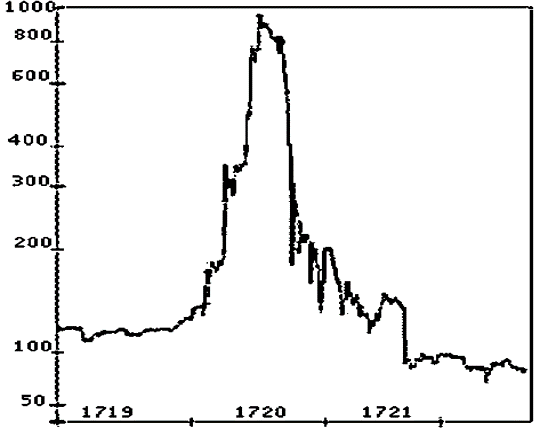Dr. Richard Feynman, the Nobel Prize-winning physicist, once reportedly said at a Caltech graduation ceremony: “Imagine how much harder physics would be if electrons had feelings!”
This offers a clue as to why investing is harder than physics. “Feelings” are a tough nut to crack. While scientific elements behave rationally, markets behave emotionally. Investing is harder than physics in this sense, because investing means dealing with human emotion and human nature.
Of course, investing math is nowhere near as intense as physics math. In fact, it is dead simple in comparison. And when you get into the domain of quantum mechanics, things get wild and bizarre. Dr. Feynman was also quoted as saying, “I think I can safely say that nobody understands quantum mechanics.”
But when it comes to investing, taking human behavior into account is a special kind of challenge — one that is harder than physics in its own way. Investing well is more about habits and training than mathematical prowess or raw brainpower.
That could be why Benjamin Graham, the father of value investing and mentor to Warren Buffett, once said: “The investor’s chief problem — and even his worst enemy — is likely to be himself.”
We can see the gap between investing and physics — and the special challenge presented by investing — via Isaac Newton, one of the greatest scientific minds of all time.
Newton is the archetype of scientific genius. Nearly every school child knows the story of the falling apple that inspired his discovery of gravity, and most college students know Newton discovered calculus (as did his contemporary and intellectual rival, G.W. Leibniz).
Not as many people are aware, however, that Isaac Newton lost a fortune — worth millions of dollars in today’s money — by getting sucked into the world’s first stock market bubble.
The South Sea company, whose official name was “The Governor and Company of the merchants of Great Britain, trading to the South Seas and other parts of America, and for the encouragement of fishing,” was founded in 1711 as a British joint-stock company. The South Sea company’s biggest asset was its official monopoly on trade with South America and its surrounding islands.
By 1720, the first year the word “bubble” was used in print to reference share prices, the South Sea company’s shares had entered a full-blown mania. The following chart, via the Wikimedia Commons, shows the South Sea company’s share price before and after the mania.
 |
For all his scientific genius, Isaac Newton lost his head like many other investors of the day. It began with a mistake of asset allocation. Instead of maintaining a diversified portfolio, Newton wound up selling his other securities and putting it all into South Sea shares.
At first Newton did well, cashing out his shares in early 1720 for an estimated profit of £7,000. As the share price flew higher still, Newton grumbled he “could calculate the motions of the heavenly bodies, but not the madness of people.”
Ultimately, Newton was gripped by FOMO, the “Fear of Missing Out.” He couldn’t stand watching his friends get rich while sitting on the sidelines. In a disastrous move, Newton plunged back into South Sea company shares at a much higher level later in the year — just in time to see the bubble collapse.
Isaac Newton wound up losing an estimated £20,000 — multiple millions of dollars in today’s money — and for the rest of his life forbade hearing the phrase “South Seas” in his presence.
If Newton were alive today, and willing to discuss the topic, he would likely agree that investing is harder than physics (with his own painful story to prove it). But why? What makes the emotional aspect of investing so challenging?
One key aspect is habits and training, or rather, a lack of habits and training when it comes to the investment process.
Scientists have a great deal of training in how to conduct experiments, how to use various tools and techniques, how to think about puzzles and problems in their field, and so on. This training fuels smart habits with a natural emphasis on rigor and detachment.
In contrast, when Isaac Newton took off his scientist hat and put on his investor hat, he seemed to go into markets blind, with no routines or habits to speak of.
That proved to be a recipe for failure on two separate fronts: Newton found himself exposed to wild swings of emotion in the market, and also to wild swings of emotion within himself, with no tools to fight back and no means to prepare.
Without habits, training, and best practices to fall back on, Newton thus lost control of his emotions — and it literally cost him a fortune.
For investors, a potential remedy is to “think like a scientist” when it comes to the investment process. Because markets, unlike electrons, have feelings — and because individual investors have feelings too — a winning investment process factors human emotions into account.
That means establishing habits and routines to safeguard against emotion-driven mistakes.
Having a list of rules is a good first step. Understanding the “why” behind the rules is a good second step. (If Newton had done this, he might have avoided losing the bulk of his fortune.)
And just as scientists need good tools, investors need tools, too. Investment software can help instill smart habits via feedback and the ease of executing established routines. Rules can also be built around software features, like exiting a position if an established risk alert is hit.
Though investing can be harder than physics, the principles of good investing are not hard to understand. The challenge is in managing human emotion — a challenge that some of the greatest minds of all time have struggled with.
But you and I don’t have to take on that challenge alone — we can establish winning habits and shape our investment behavior through software.





